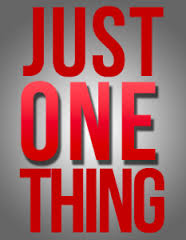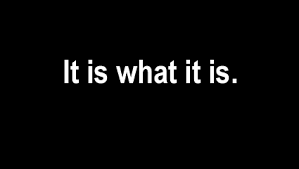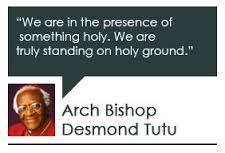In the 1991 movie City Slickers, Billy Crystal plays New York executive Mitch Robbins, whose hassled life is wearing negatively on his work, his marriage, and his friendships. At thirty-nine years old he finds himself deep in a midlife crisis.  For his birthday, his two best buddies purchase a two-week vacation for the three of them at a dude ranch in New Mexico to participate in a dude cattle drive. As is usually the case with Billy Crystal, hilarity and poignancy ensue simultaneously. The tough-as-nails trail boss Curly, played to great effect by Jack Palance, is an enigma to Mitch from day one—Curly is silent, curmudgeonly, skilled at his job, self-assured, and clearly in possession of information that Mitch badly needs. One day while rounding up strays, Mitch asks, “Curly, what is the secret of life?” As a good philosopher should, Curly answers with another question.
For his birthday, his two best buddies purchase a two-week vacation for the three of them at a dude ranch in New Mexico to participate in a dude cattle drive. As is usually the case with Billy Crystal, hilarity and poignancy ensue simultaneously. The tough-as-nails trail boss Curly, played to great effect by Jack Palance, is an enigma to Mitch from day one—Curly is silent, curmudgeonly, skilled at his job, self-assured, and clearly in possession of information that Mitch badly needs. One day while rounding up strays, Mitch asks, “Curly, what is the secret of life?” As a good philosopher should, Curly answers with another question.
You know what the secret of life is?
No, what?
Your finger?
One thing. Just one thing. You stick to that and everything else don’t mean shit.
That’s great, but what’s the one thing?
That’s what you’ve gotta figure out.
One thing. Finding out what that one thing is might be the point of anyone’s life, but that’s a pretty big task. At the beginning of a new year, a more manageable question might be “What is the one thing that I resolve to do this coming year?” And I don’t mean something like drinking less coffee or going to the gym more. I mean “What is the one thing that I resolve to do in this coming year that will be good for the inner me, for my soul?” I gave this assignment to the Living Stones seminar group that meets once a month after church when we met in December, and they’ll be bringing their “one thing” resolution when we meet next. As for me, I resolve that in 2016 I will be a more reverent person.
I gave this assignment to the Living Stones seminar group that meets once a month after church when we met in December, and they’ll be bringing their “one thing” resolution when we meet next. As for me, I resolve that in 2016 I will be a more reverent person.
Reverence is not a concept that is particularly in favor in Western culture—it probably hasn’t been for decades. The term is almost always used in religious contexts, especially during the holiday season just ended. The shepherds and wise men gaze reverently upon the Christ child, Mary listens reverently as the angel tells her that her world is about to be turned upside down, the stable animals chew their hay reverently as they observe Mary reverently giving birth to Jesus while Joseph reverently boils water and finds some swaddling clothes. I suppose that sort of faux holiness has its place (maybe), but that’s not what I have in mind.
The sort of reverence I am resolving to develop this year is more like Moses’ reaction to the burning bush in Exodus. As he is taking care of his father-in-law Jethro’s flocks one day, he notices something weird out of the corner of his eye—a bush that is on fire but is not being burnt up. He could have thought “that’s weird” and kept on going.  He could have made a mental note to check back later when he wasn’t so busy. He could have Googled “burning bush” on his tablet after dinner with Zipporah and the kids when he had a few minutes of down time. But he didn’t. Instead, he said “I must turn aside and look at this great sight, and see why the bush is not burned up.” Loose translation—“Holy Shit! What the hell is that?” Moses was willing to interrupt his busy day to take a look at something outside his usual frame of reference. Reverence begins with the ability to see in a different way, to notice what’s going on outside the boundaries of my agenda, to be attentive to even the most mundane items and events that cross my path. Most importantly, reverence is cultivated by an increasing awareness that everything is important in its own right.
He could have made a mental note to check back later when he wasn’t so busy. He could have Googled “burning bush” on his tablet after dinner with Zipporah and the kids when he had a few minutes of down time. But he didn’t. Instead, he said “I must turn aside and look at this great sight, and see why the bush is not burned up.” Loose translation—“Holy Shit! What the hell is that?” Moses was willing to interrupt his busy day to take a look at something outside his usual frame of reference. Reverence begins with the ability to see in a different way, to notice what’s going on outside the boundaries of my agenda, to be attentive to even the most mundane items and events that cross my path. Most importantly, reverence is cultivated by an increasing awareness that everything is important in its own right.  The Greek philosopher Protagoras famously claimed that “man is the measure of all things.” Reverence says that I am not the measure of anything—what is most important and interesting is almost never about me.
The Greek philosopher Protagoras famously claimed that “man is the measure of all things.” Reverence says that I am not the measure of anything—what is most important and interesting is almost never about me.
The work of the French, Jewish mystic, activist and philosopher Simone Weil has been important to me both personally and professionally for many years, but one of her many cryptic phrases has been a mystery to me until just recently. In Gravity and Grace, she writes that “Here below, to look and to eat are two different things. . . . The only people who have any hope of salvation are those who occasionally stop and look for a time, instead of eating.” This truly made no sense to me for a long time. But as I’ve learned something about peace, silence and attentiveness over the past few years, I’ve begun to see Simone’s point. Human beings are naturally acquisitive and devouring creatures—we are seldom willing to let things be as they are. If X is attractive, I want to buy it. If Y looks useful, I want to consume it. If Z is important, I want to make it mine. We turn these manic energies on the world around us and on each other on a regular basis. Simone’s point is that not everything is here for my use and pleasure.  The importance of what I encounter during a given day is not to be judged according to how important it is to me. And as I learn that everything is important in its own right, I can begin to see it differently. To “let it be,” as the Beatles sang, and to remember that “it is what it is,” as Jeanne frequently says.
The importance of what I encounter during a given day is not to be judged according to how important it is to me. And as I learn that everything is important in its own right, I can begin to see it differently. To “let it be,” as the Beatles sang, and to remember that “it is what it is,” as Jeanne frequently says.
So in practical terms, what does reverence amount to? At the very least, it means giving each task, person, and event in my life my undivided attention. A colleague of mine defines “multitasking” as “doing several things poorly at the same time.” If multitasking is the enemy of reverence, which I’m quite sure it is, then I’m in trouble. I find it very difficult to do one thing at a time—the very writing of this essay has been interrupted, sometimes in mid-sentence, by going to a second screen to check on my blog numbers,  then a third screen to see if my latest important email has been responded to yet. During a typical evening it is not unusual for me to be watching a television show with Jeanne, farting around on my tablet, and grading a paper or two all at the same time.
then a third screen to see if my latest important email has been responded to yet. During a typical evening it is not unusual for me to be watching a television show with Jeanne, farting around on my tablet, and grading a paper or two all at the same time.
So I resolve to ask myself the following question frequently in the following weeks and months: Is what you are doing worthy of your undivided attention? And if the answer is “yes,” then the follow-up question is Then why are you not giving it your undivided attention? Learning to give my undivided attention to each thing as I encounter it is the first step in recognizing the value inherent in even the tiniest and most insignificant part of reality. Moses took the time to check out something unusual and found out that he was standing on holy ground. And so are we. All the time.













